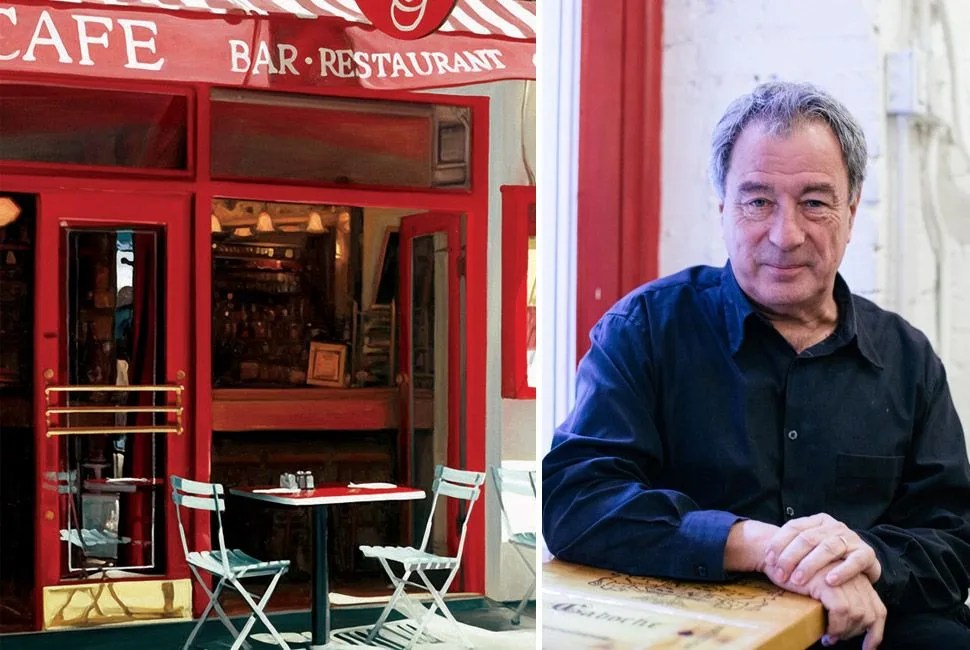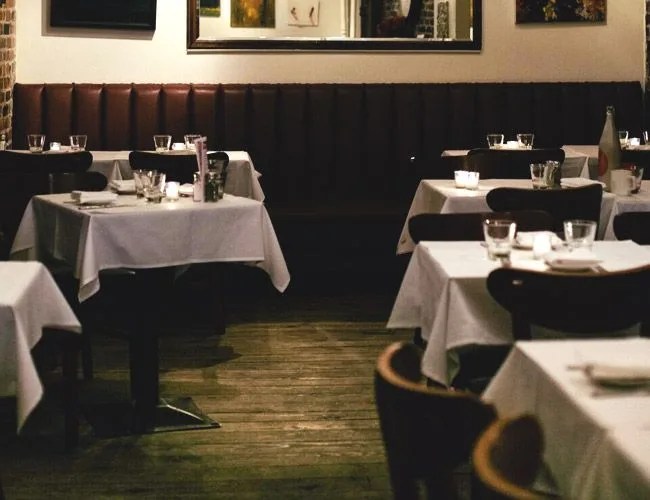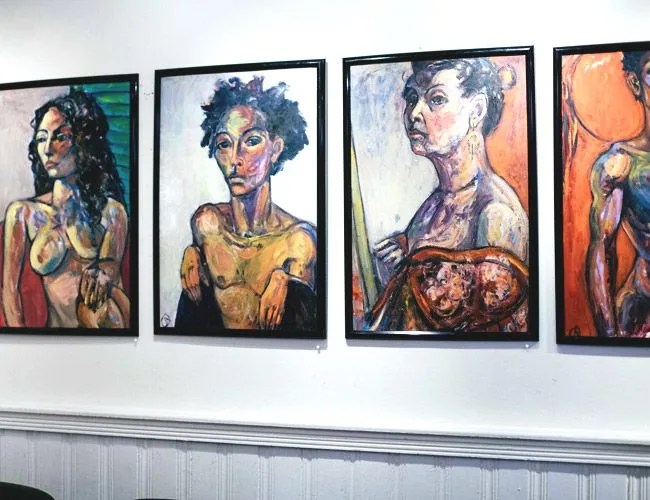On a rainy fall day in New York’s West Village, sheets of precipitation fell at angles that made an umbrella entirely ineffective. I fought through the deluge on my way to 29 Cornelia Street (getting completely soaked in the process) to talk with Robin Hirsch, a man who has created unique haven for the arts. Hirsch, a writer and director, co-founded the Cornelia Street Cafe in 1977 with Charles McKenna, an actor, and Raphaela Pivetta, a visual artist. The spot, from its inception, was an artist’s cafe. From poetry readings and performances of plays to a flourishing songwriters collective, the cafe catered toward creative types and over time, attracted a wide range of people looking to express themselves. Senator Eugene McCarthy did a poetry reading at the Cornelia Street Cafe and William Zinsser, the author of On Writing Well, would often moonlight at the cafe, playing piano, with The New Yorker cartoonist Arnold Roth on saxophone.
Cornelia Street Cafe is frequently included on lists of the top jazz venues in New York City, and the jazz magazine Downbeat has included the cafe on their “100 Great Jazz Clubs of the World” list. Hirsch invited me to the cafe’s bar to sample an array of new wines — the Cafe is also known for their “by the glass” wine selection — and to hear the tales of the place. Hirsch speaks in long-winded sentences, telling stories in a free-association manner. He, like his cafe, cannot avoid linking the intellectual and the artistic, and our conversation turned out to be — as I sat drying in the cafe, sipping wine, hearing stories — one of the more poignant experiences I’ve had in the city.
GP What do you attribute to the cafe’s success?
RH I don’t give too much thought to what it is exactly that we’re doing, mostly because there’s so much going on, that it develops a life of its own. I feel that we have not stood still, and that just as there are people of considerable eminence who have performed or do perform here, there are still really young turks who are starting out and are carving careers for themselves.
GP You also have an incredibly broad scope.
RH We do poetry in 12 languages and every conceivable genre of music, in addition to jazz. The thing that perhaps characterized us in our earliest years was songwriting. Songwriters would gather on Monday nights and were allowed by their own rules to sing only what they had written that week. And out of that, thousands of new songs were born and the careers of some quite well-known people.
What I think is unusual is we have legendary jazz figures who are so delighted to play in a space as intimate as this, and we have up-and-coming people whose careers are just beginning, so it’s sort of everybody.


